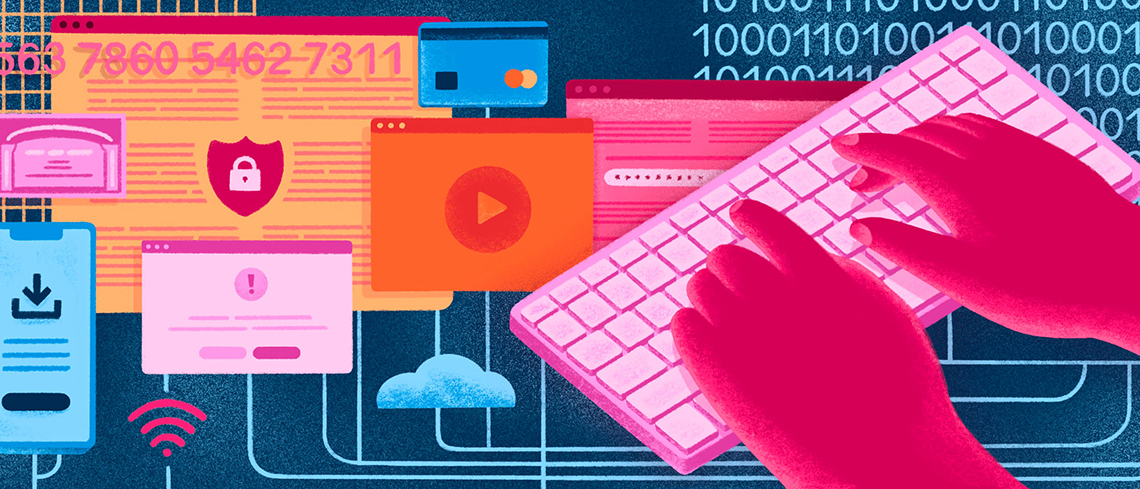7 Internet Safety Rules
Follow these 7 internet safety rules to help keep yourself and others safe online.
1. Report and avoid rude online behavior.
Cyberbullying hurts everyone involved. If you see harsh or rude things happening, report them on the website or tell a trusted adult. You should also reach out and be a friend to the person being bullied. As you watch out for others, make sure to take a look at your own actions online. Is it possible that what you’re doing could be hurting someone else, even without meaning to? If so, take steps to make amends as soon as possible.
2. Be careful of downloads.
Dangerous viruses can be downloaded onto your computer along with pictures, games, or videos. While some websites are likely to be more safe than others, it’s best to always be careful. When in doubt, ask an adult before downloading something to make sure nothing bad happens.
3. Don’t click on unknown links.
Links can send you to fake websites that infect your device or give your information to scammers. If someone sends you something out of nowhere or isn’t acting like themselves, don’t click on it. Even good websites can have ads that take you somewhere bad, so be very careful of what you click.
4. Don’t share sensitive data.
Personal information can be used to steal your identity or accounts. Be very careful about what you share online and who you share it with. When in doubt, don’t.
5. Choose your “friends” wisely.
Making friends online is great! But you need to remember that not everyone online is who they say they are. Watch out for people who…
- Make you feel sad or bad about yourself
- Tell you to keep secrets from friends and family
- Want you to only be friends or spend time with them
- Offer to send you gifts for doing things or ask for favors
- Ask you to meet them alone in real life
- Send or ask for inappropriate pictures
These aren’t people you want to spend time with. You should tell a trusted adult if someone does any of these or other things that make you uncomfortable online.
6. Make sure what you read and share is true.
Anyone can say anything online, and a lot of people say things that aren’t true. You should double check what you read by searching for other articles or opinions online. If lots of people are saying it, it’s more likely to be true—but that’s not always the case. In general, the most trustworthy websites are government sites that end in .gov. When in doubt, don’t believe it or share it, even if it’s saying what you want to hear.
7. Keep passwords unique, private, and strong.
Your password is the number one thing that will protect your online accounts. Don’t share it with anyone except a parent or guardian. Also, while it may feel easier, don’t reuse the same password. If someone is able to guess it on one site, they’ll have access to any accounts that use that password.
Your passwords should have:
- A minimum of 12 characters
- A variety of lowercase and uppercase letters
- Special characters & symbols.
Following these rules can help make sure that the time you spend online is fun and helpful, not risky or hurtful.
This article has been republished with permission. View the original article: 7 Internet Safety Rules.




Post your comment
Comments
No one has commented on this page yet.
RSS feed for comments on this page | RSS feed for all comments